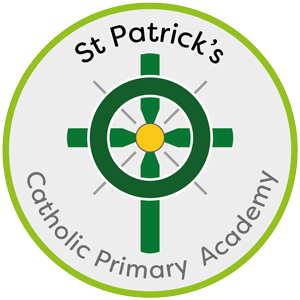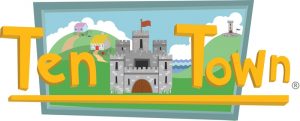Latest News
Mathematics at St. Patrick’s
Subject Leader: Mrs Mulrooney
 Our vision is to produce confident mathematicians who know and understand the purpose, relevance and importance of maths in their everyday life. We want our children to be number confident and able to make a valued contribution for themselves, the community and the world. Our aim is to provide quality first teaching in mathematics, which sets high expectations for all pupils. We will support all pupils to ensure that they are able, where possible, to master an age appropriate curriculum.
Our vision is to produce confident mathematicians who know and understand the purpose, relevance and importance of maths in their everyday life. We want our children to be number confident and able to make a valued contribution for themselves, the community and the world. Our aim is to provide quality first teaching in mathematics, which sets high expectations for all pupils. We will support all pupils to ensure that they are able, where possible, to master an age appropriate curriculum.
Intent and Implementation
Mathematics is a creative and highly inter–connected discipline that has been developed over centuries, providing the solutions to some of history’s most intriguing problems. It is essential to everyday life, critical to science, technology and engineering and necessary for financial literacy and most forms of employment. A high quality mathematics education therefore provides a foundation for understanding the world, the ability to reason mathematically, an appreciation of the beauty and power of mathematics, and a sense of enjoyment and curiosity about the subject. (National Curriculum 2014).
Mathematics at our school is based on the National Curriculum for Mathematics for year groups 1 to 6. The Early Years Foundation Stage Framework informs mathematical learning in the Early Years Foundation Stage. These programmes of study are used to give a balanced and broad curriculum to all of our pupils; this includes the statutory and non-statutory aspects of the curriculum and EYFS framework.
At St Patrick’s Catholic Primary Academy, we aim to provide a mastery approach and to deliver high quality Mathematics education for all our pupils in order for them to develop a sense of enjoyment and curiosity about the subject through our ‘Curriculum Drivers.’ We want our pupils to engage in rich experiences which allow them to think critically and enhance their resilience. They will be provided with opportunities to develop their skills in fluency, reasoning and problem solving as stated in the aims of the National Curriculum for Mathematics.
Our aims in the teaching of mathematics are:
- to promote enjoyment of learning through practical activity, exploration and discussion;
- to develop confidence and competence with numbers and the number system;
- understand the four operations and be able to calculate both mentally and by using formal written methods;
- be able to recall an increasing number of facts over time;
- to develop the ability to solve problems through decision-making and reasoning in a range of contexts;
- to develop a practical understanding of the ways in which information is gathered and presented; to explore features of shape and space, and developing measuring skills in a range of contexts;
- to help children understand the importance of mathematics in everyday life.
As well as the three aims outlined in the National Curriculum (DfE, 2014):
- to become fluent in the fundamentals of mathematics, including through varied and frequent practice with increasingly complex problems over time, so that pupils develop conceptual understanding and the ability to recall and apply knowledge rapidly and accurately.
- to reason mathematically by following a line of enquiry, conjecturing relationships and generalisations, and developing an argument, justification or proof using mathematical language.
- to solve problems by applying their mathematics to a variety of routine and non-routine problems with increasing sophistication, including breaking down problems into a series of simpler steps and persevering in seeking solutions.
Our Curriculum Design
We believe that the vast majority of children can succeed in learning mathematics in line with
national expectations:
-
It is achievable for all. We have high expectations and encourage a positive ‘can do’ mindset towards mathematics in all pupils, creating learning experiences which develop children’s resilience in the face of a challenge and carefully scaffolding learning so everyone can make progress
-
The whole class is taught mathematics together, with the expectation that every child will master the key concept, whilst some will work more deeply on challenging tasks
-
Deep and sustainable learning – lessons are designed with careful small steps, questions and tasks in place
-
The ability to build on something that has already been sufficiently mastered – pupils’ learning of concepts is seen as a continuum across the school
-
Conceptual and Procedural Fluency – teachers move mathematics from one context to another, using objects, pictorial representations, equations and word problems.
-
There are high expectations for pupils to learn times tables and key number facts and have a true sense of number. They are encouraged to think whether their method is appropriate, reliable and efficient.
-
Differentiation is used in many forms, such as the amount of time that pupils will spend using concrete resources or pictorial representations to grasp concepts. It will be seen through targeted questioning and the feedback and scaffolding individual pupils receive in class as they work through problems.
-
Challenge through greater depth – teachers set tasks to deepen knowledge and improve reasoning skills within the objectives of their year group.
-
The ability to reason about a concept and make connections – pupils are encouraged to make connections and spot patterns between different concepts
-
Precise mathematical language, often used in ‘stem sentences’, is used by teachers so that mathematical ideas are conveyed with clarity and precision
-
Sufficient time is spent on key concepts, to ensure that learning is well developed and deeply embedded before moving on
-
Problem Solving is central to apply their understanding
Useful Links
Mathematics Documents







